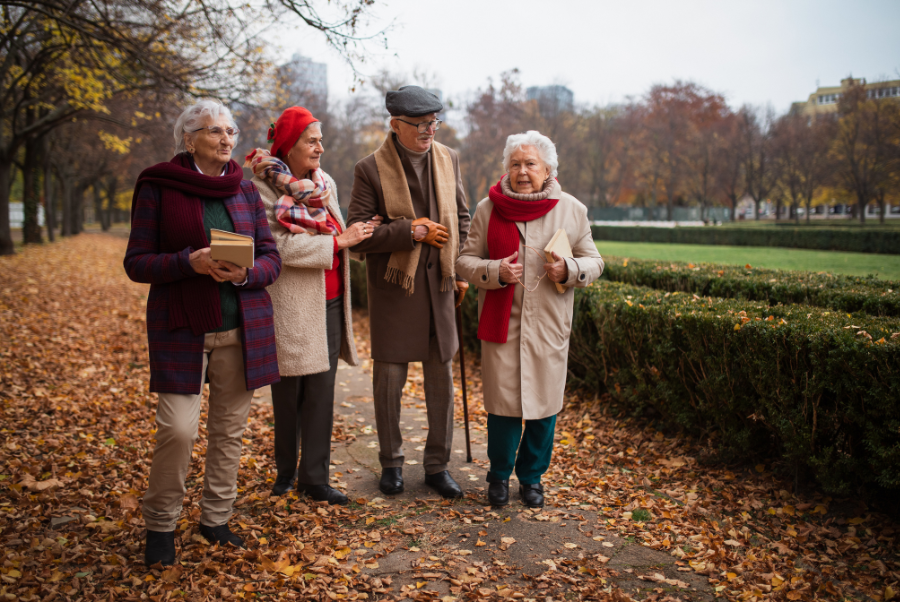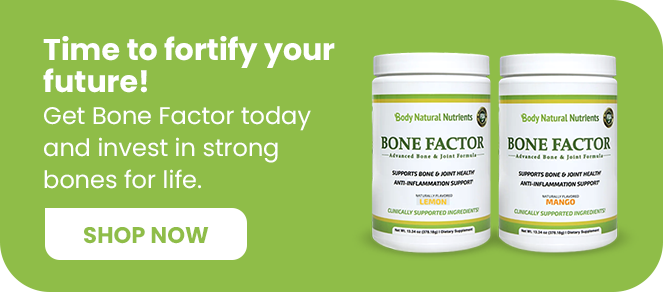Maintaining bone strength is crucial for seniors to ensure mobility, independence, and quality of life. As we age, our bones naturally lose density, making them more susceptible to fractures and conditions like osteoporosis. Exercising regularly can significantly help in boosting senior bone strength, enhancing overall well-being.
In this comprehensive guide, we’ll introduce you to five powerful fall exercises specifically designed to boost senior bone strength. Incorporating these exercises into your daily routine will not only strengthen your bones but also improve balance, coordination, and flexibility. Additionally, we’ll explore how combining these exercises with nutritional support, like our Plant-based supplement Bone Factor, can further enhance your bone health.
Understanding Bone Strength in Seniors
Why is Bone Strength Crucial for Seniors?
Bone strength is a key determinant of overall health, especially as we age. Bone density, a measure of the amount of minerals (such as calcium) in a specific volume of bone, naturally declines with age. This reduction in bone density increases the risk of osteoporosis, a condition characterized by brittle and fragile bones, and increases the likelihood of fractures even from minor falls.
Benefits of Strong Bones:
- Reduced Fracture Risk: Strong bones are less likely to break under stress, reducing the risk of fractures.
- Enhanced Mobility: Healthy bones support better joint function, allowing seniors to maintain mobility and independence.
- Better Posture: Bone strength supports a straight and strong spine, reducing issues like back pain and stooped posture.
- Improved Balance and Coordination: Strong bones contribute to muscle strength and coordination, decreasing the likelihood of falls.
Interesting Fact:
According to the National Osteoporosis Foundation, about 54 million Americans have osteoporosis or low bone mass, placing them at increased risk for fractures. Maintaining bone strength is crucial in preventing such conditions and ensuring a high quality of life in the senior years.
The Role of Fall Exercises in Boosting Bone Strength
How Fall Exercises Boost Senior Bone Strength
Fall exercises, particularly weight-bearing exercises, play a crucial role in maintaining and boosting bone strength in seniors. These exercises force you to work against gravity, stimulating bone growth and increasing bone density.
Benefits of Fall Exercises:
- Weight-Bearing: Exercises like walking, stair climbing, and strength training force bones to support weight, encouraging bone remodeling and strength.
- Balance and Coordination: Exercises such as Tai Chi and yoga improve balance and decrease the risk of falls.
- Flexibility: Stretching exercises enhance joint mobility and reduce the risk of injuries.
Types of Exercises to Focus On:
- Weight-Bearing: Includes activities like walking and stair climbing.
- Strength Training: Involves lifting weights or using resistance bands.
- Balance Exercises: Activities like Tai Chi and yoga that improve coordination.
- Flexibility Exercises: Stretching routines that increase joint mobility.
By incorporating these exercises into your daily routine, you can actively work to boost senior bone strength, ensuring not only stronger bones but also an overall healthier and more active lifestyle.
Exercise 1: Walking
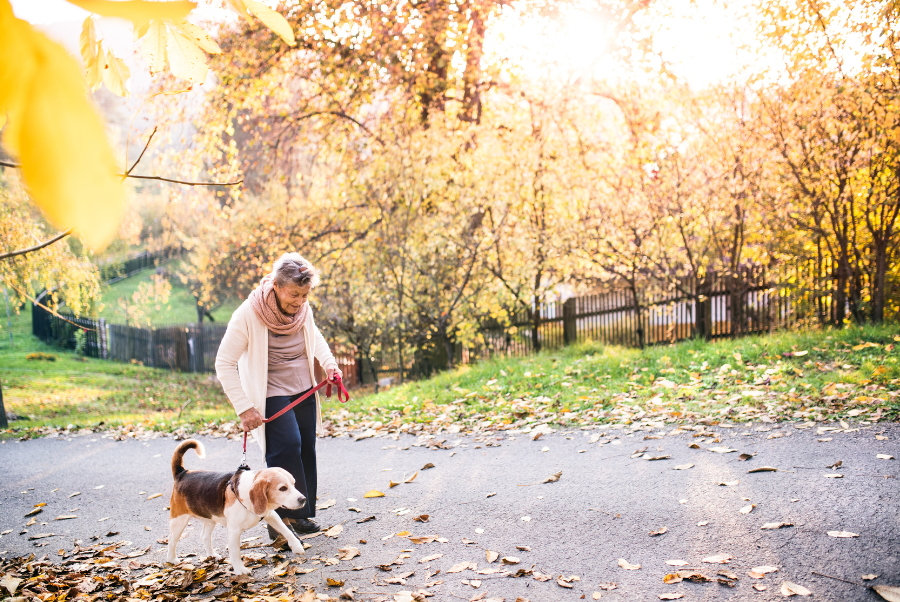
Walking: The Simplest Yet Effective Exercise
Walking is one of the simplest yet most effective forms of exercise to boost senior bone strength. It’s a low-impact, weight-bearing exercise that can be easily incorporated into daily routines, making it an ideal choice for seniors looking to strengthen their bones.
How Walking Helps in Strengthening Bones:
- Weight-Bearing Benefits: As a weight-bearing exercise, walking forces your bones to support your body’s weight, promoting bone density.
- Improves Balance and Coordination: Regular walking enhances balance and coordination, reducing the risk of falls.
- Cardiovascular Health: Walking also supports heart health, improving overall circulation and reducing the risk of cardiovascular diseases.
Tips for Making Walks More Beneficial:
- Wear Weights: Consider wearing light ankle or wrist weights to increase resistance and further stimulate bone growth.
- Vary Terrain: Walking on different surfaces like grass, gravel, or trails can challenge your balance and coordination, providing additional benefits.
- Consistency: Aim for at least 30 minutes of walking most days of the week to see significant benefits.
Safety Precautions for Seniors While Walking:
- Proper Footwear: Wear comfortable and supportive shoes to avoid any foot or ankle injuries.
- Stay Hydrated: Keep a water bottle handy to stay hydrated during your walks.
- Walk With a Companion: Walking with a friend or in a group not only makes the activity more enjoyable but also adds a layer of safety.
Quick Walking Fact:
According to a study published in the Journal of Bone and Mineral Research, consistent walking can increase bone density by up to 5%. This highlights the significant impact this simple exercise can have on boosting senior bone strength.
Exercise 2: Strength Training
Strength Training: Lifting Your Way to Stronger Bones
Strength training, also known as resistance training, is one of the most effective ways to boost senior bone strength. This type of exercise involves lifting weights, using resistance bands, or performing body-weight exercises like push-ups and squats. By challenging your muscles and bones, strength training promotes bone density and overall skeletal health.
Importance of Strength Training in Bone Health:
- Bone Density Improvement: The mechanical load from strength training stimulates bone-forming cells, leading to increased bone density.
- Muscle Mass and Strength: By increasing muscle mass, strength training helps protect bones and joints, reducing the risk of falls and fractures.
- Metabolism Boost: Strength training boosts metabolism, aiding in weight management and overall physical fitness.
Recommended Strength Training Exercises for Seniors:
- Weight Lifting: Using free weights or machines to perform exercises like bicep curls, tricep extensions, and chest presses.
- Resistance Bands: Versatile and portable, resistance bands provide consistent tension throughout exercises like leg lifts and arm pulls.
- Body-Weight Exercises: Moves like squats, lunges, and push-ups require no equipment and can be done anywhere.
Tips for Starting a Strength Training Routine Safely:
- Start with Light Weights: If you’re new to strength training, begin with light weights to avoid injury and gradually increase the weight as your strength improves.
- Focus on Form: Ensure proper form to maximize benefits and reduce the risk of injury. Consider working with a trainer if you’re unsure about your technique.
- Rest Between Sessions: Allow at least 48 hours of rest between strength training sessions for the same muscle groups to recover and avoid overuse injury.
Safety Measures for Strength Training:
- Warm-Up: Always warm up before exercising to increase blood flow to the muscles and prevent injuries.
- Hydrate: Keep hydrated before, during, and after your workout to maintain optimal performance and recovery.
- Monitor Progress: Keep track of your workouts and progress to stay motivated and ensure you’re improving.
Quick Strength Training Fact:
A study from the American Journal of Health Promotion found that older adults who engaged in regular strength training experienced a 2-4% increase in bone density. This attests to the significant role strength training plays in maintaining and boosting senior bone strength.
Exercise 3: Tai Chi
Tai Chi: Gentle Movements for Strong Bones and Better Balance
Tai Chi is a form of martial art known for its slow, deliberate movements and deep breathing. It offers numerous health benefits, particularly for seniors, including improved bone strength, balance, and overall well-being. Practicing Tai Chi regularly can be a gentle yet effective way to boost senior bone strength.
How Tai Chi Promotes Bone Strength and Overall Health:
- Weight-Bearing Movements: Tai Chi’s gentle weight-bearing movements help to stimulate bone growth and increase bone density.
- Improved Balance and Coordination: The focus on slow, controlled motions enhances balance, reducing the risk of falls.
- Flexibility and Joint Health: Tai Chi’s emphasis on stretching and flowing movements improves joint mobility and flexibility.
Specific Tai Chi Movements Beneficial for Bones:
- Commencing Form: This simple movement helps in grounding and balancing the body.
- Ward Off: A defensive move that involves shifting body weight, stimulating the bones.
- Grasp the Bird’s Tail: Combines several Tai Chi forms to enhance coordination and bone strength.
Tips for Incorporating Tai Chi into a Daily Routine:
- Classes and Groups: Joining a local Tai Chi class or group can provide guidance and community support.
- Consistency: Aim to practice Tai Chi at least 3-4 times a week for optimal benefits.
- Home Practice: Utilize online resources or instructional videos to practice Tai Chi at home.
Additional Benefits of Tai Chi:
- Mental Relaxation: The meditative aspects of Tai Chi help reduce stress and improve mental health.
- Cardiovascular Health: The controlled movements and breathing techniques improve heart health and circulation.
- Social Interaction: Participating in group classes fosters social connections and emotional well-being.
Quick Tai Chi Fact:
Research published in the Journal of Rheumatology showed that seniors who practiced Tai Chi regularly experienced significant improvements in balance and bone mineral density. This demonstrates the effectiveness of Tai Chi in promoting senior bone strength and overall health.
Exercise 4: Stair Climbing
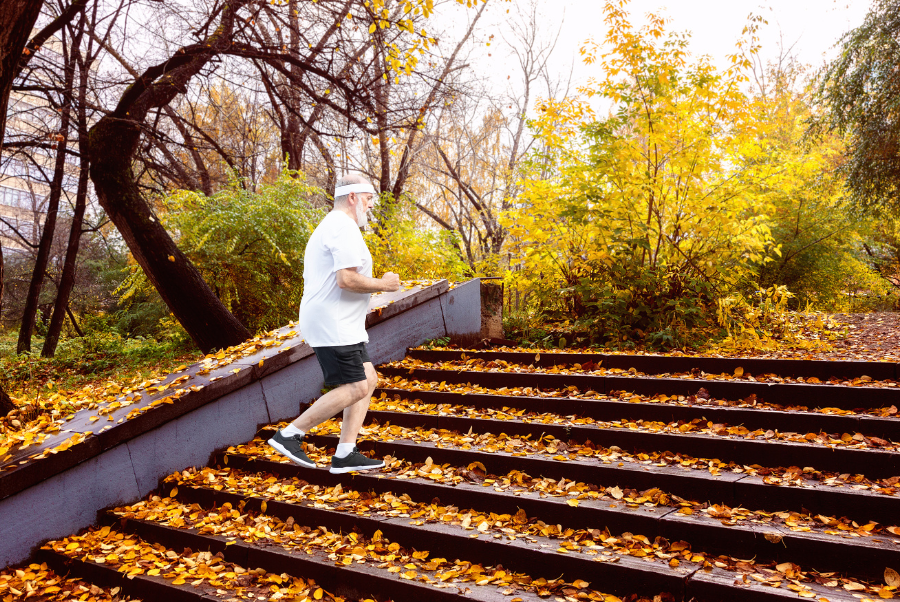
Stair Climbing: An Easily Accessible Bone Strengthening Activity
Stair climbing is a highly accessible and effective exercise that can significantly boost senior bone strength. This simple yet strenuous activity involves climbing up and down stairs, which provides a weight-bearing workout that strengthens bones and enhances cardiovascular health.
Benefits of Stair Climbing for Bone Health:
- Weight-Bearing Exercise: The act of lifting your body weight against gravity stimulates bone growth and enhances bone density.
- Muscle Strength: Climbing stairs works major muscle groups, particularly the legs, which in turn support stronger bones.
- Cardiovascular Fitness: Stair climbing elevates the heart rate, improving cardiovascular health and endurance.
Tips for Incorporating Stair Climbing into Daily Life:
- Home Routine: Utilize stairs in your home or apartment building as part of your daily exercise routine.
- Public Facilities: Take advantage of public staircases in parks, malls, or office buildings.
- Set Goals: Aim for a certain number of minutes or repetitions of stair climbing daily to track progress and stay motivated.
Safety Measures to Take While Performing Stair Climbing:
- Use Handrails: Always use handrails for balance and safety, especially if you’re new to stair climbing.
- Wear Proper Footwear: Ensure you wear shoes with good grip to prevent slipping.
- Pace Yourself: Start slowly and gradually increase the intensity to avoid overexertion and injury.
Quick Stair Climbing Fact:
According to a study published in the journal Bone, stair climbing can increase bone density in the legs and hips, which are critical areas for seniors to strengthen to prevent fractures. This makes stair climbing a valuable exercise to incorporate into routines for boosting senior bone strength.
Exercise 5: Yoga
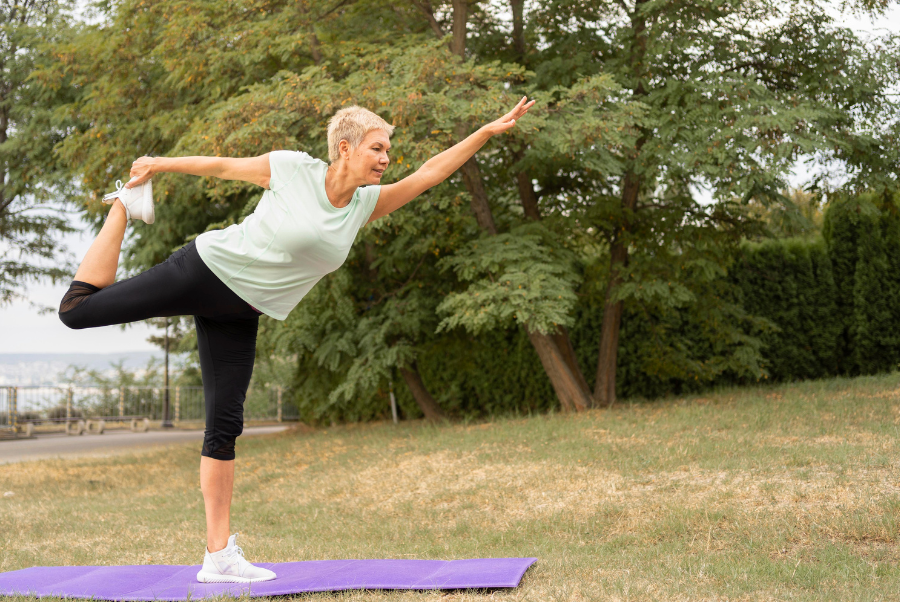
Yoga: Flexibility and Bone Strength Combined
Yoga is a holistic practice that combines physical postures, breath control, and meditation. For seniors, yoga offers a dual benefit of enhancing flexibility and boosting bone strength. By incorporating various yoga poses that require weight-bearing and balance, seniors can significantly improve their bone health.
How Yoga Contributes to Stronger Bones:
- Weight-Bearing Poses: Many yoga poses involve supporting your body weight, which can help increase bone density.
- Improved Flexibility: Yoga stretches help maintain and improve joint and muscle flexibility, which is vital for overall mobility.
- Enhanced Balance: Yoga’s focus on balance and coordination reduces the risk of falls and associated fractures.
Specific Yoga Poses Beneficial for Bone Strength:
- Tree Pose: Balancing on one leg strengthens the bones in the legs and hips.
- Warrior Pose: A powerful stance that engages the entire body and enhances bone density.
- Chair Pose: Simulates sitting in a chair and strengthens the bones in the legs and lower back.
Recommended Yoga Routines for Seniors:
- Beginner Classes: Enroll in beginner yoga classes designed specifically for seniors to learn proper techniques.
- Gentle Yoga: Focus on gentle yoga routines that emphasize slow and controlled movements.
- Daily Practice: Aim for at least 15-20 minutes of yoga daily to reap the benefits.
Additional Benefits of Yoga:
- Mental Well-being: The mindfulness aspect of yoga reduces stress and improves mental clarity.
- Breath Control: Yoga exercises enhance lung capacity and overall respiratory health.
- Social Interaction: Participating in yoga classes fosters a sense of community and support.
Quick Yoga Fact:
A study in the journal Topics in Geriatric Rehabilitation found that seniors practicing yoga regularly experienced improved bone density and reduced risk of osteoporosis. This emphasizes yoga’s crucial role in boosting senior bone strength and overall health.
Additional Tips to Boost Senior Bone Strength
Beyond Exercises: Additional Tips to Boost Senior Bone Strength
While exercises play a vital role in maintaining and boosting bone strength, there are additional measures that seniors can take to support their bone health. Integrating these tips with a regular exercise routine can provide comprehensive bone support.
- Incorporate a Balanced Diet:
- Calcium and Vitamin D: A diet rich in calcium (found in leafy greens, fortified foods) and Vitamin D (obtained from sun exposure and supplements) is essential for bone health. These nutrients work synergistically to enhance bone density and strength.
- Protein Intake: Ensure adequate protein intake, which is vital for maintaining muscle mass and bone repair.
- Stay Hydrated:
- Hydration Importance: Proper hydration is crucial for overall health and the optimal function of bones and joints.
- Daily Water Intake: Aim for at least 8 glasses of water a day, adjusting based on individual needs and activity levels.
- Regular Check-Ups:
- Bone Density Tests: Regular bone density tests and consultations with healthcare providers help monitor bone health and address any issues early.
- Medical Guidance: Follow medical advice and take prescribed medications or supplements as directed.
- Supplement Support:
- Plant-Based Supplement Bone Factor: Enhance your bone strength with our Plant-based supplement Bone Factor. This supplement is crafted to provide essential nutrients that support bone density and overall skeletal health, offering a powerful addition to your exercise regimen.
- Stay Active and Engaged:
- Variety of Activities: Engage in a variety of physical activities like gardening, dancing, or swimming to stay active and healthy.
- Social Connections: Maintain social interactions through group activities and community events, which can contribute to mental and emotional well-being.
Quick Additional Tip Fact:
Combining these tips with a regular exercise routine like the five powerful fall exercises mentioned above can lead to significant improvements in bone strength and overall health.
Conclusion
Start Your Journey to Stronger Bones Today
Maintaining and boosting senior bone strength is essential for a healthy, active, and independent lifestyle. The five powerful exercises we’ve discussed – walking, strength training, Tai Chi, stair climbing, and yoga – provide a comprehensive approach to improving bone density, balance, and overall well-being.
Emphasis on Combined Benefits:
Combining these exercises with a balanced diet, proper hydration, regular check-ups, and supplement support can enhance the benefits of your efforts.
Alongside incorporating these powerful fall exercises into your daily routine, consider boosting your bone health even more with our Plant-based supplement Bone Factor. This supplement is specifically designed to support bone density and overall skeletal health, giving you an extra boost towards stronger, healthier bones.
Stay active, stay healthy, and embrace a comprehensive approach to bone strength today!

